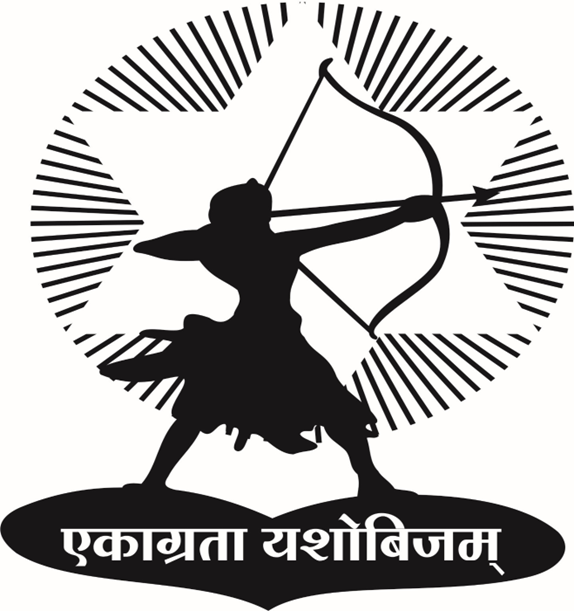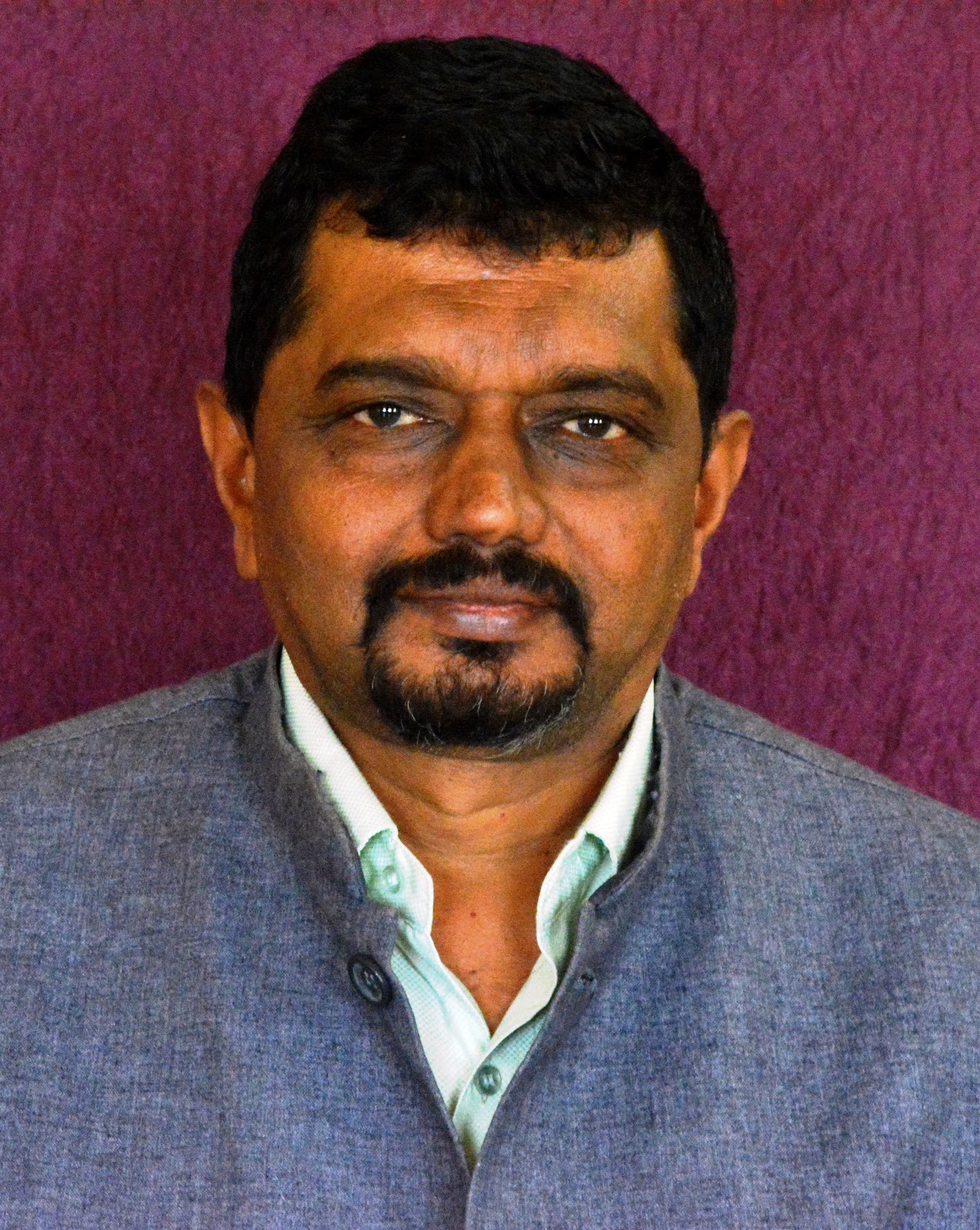
Gramonnati Mandal's
College of Agriculture Business Management, Narayangaon
(Affiliated to Mahatma Phule Krishi Vidyapeeth, Rahuri)
Establishment in 2006


Gramonnati Mandal's
College of Agriculture Business Management, Narayangaon
(Affiliated to Mahatma Phule Krishi Vidyapeeth, Rahuri)
Establishment in 2006


The Gramonnati Mandal Institute of Narayangaon was founded by the late Guruvarya R P Sabnis. The institute has been a beacon of pioneering education in the northern region of Pune District, Maharashtra. Our great founder Guruvarya Sabnis was a prolific thinker, great orator and a passionate patriot. Being a visionary educationist he dedicated his life to uplift the rural area by binding it to education. His foresight recognized the need to have a multidimensional education system that would go hand in hand with the rural life. The majority of rural population being farmers, he associated agriculture with formal education and thus the Agricultural School of Narayangaon was conceived of his exceptional thought. Since then the Gramonnati Mandal has carried this beacon of education forward in the hope of providing a progressive and productive path to the people. Its students no doubt have become self reliant and proudly bear self esteem on their sleeves.

From the Academic year 2006-2007, Gramonnati Mandal Institute of Narayangaon (Pune) established College of Agri-Business Management at Narayangaon for offering a new four year Degree program in the field of Agri-Business Management. The College is being run by the Gramonnati Mandal, and is affiliated to the Mahatma Phule Krushi Vidyapeeth, Rahuri & recognized by Maharashtra Council of Agricultural Education & Research (MCAER), Pune (MS.).
Narayangaon is situated in Junnar tahsil of Pune District birth place of Chatrpati Shivaji College is located on Pune- Nashik Highway 70 kms. from Pune city, had already started developing as a hub of educational institutions, with set up way back in the year 1944, with set up of Agriculture school.
At present along with B. Sc. (Hons) Agri-Business Management, Gramonnati Mandal is having 20 different wings in affiliation with State & National level boards/Universities offering the education from pre-primary to PhD, among which related with Agriculture, Mali Training Course, Agriculture Polytechnic & ABM affiliated to MPKV Rahuri, MCVC- Horticulture (State board Pune), Dairy Diploma, (MAFSU- Nagpur) and Krishi Vigyan Kendra (ICAR- New Delhi).
Narayangaon and surrounding area is well known area for commercial agriculture especially Fruit, Vegetables and Flower cultivation, College is having its farm just adjusant to campus and the sports ground is just in front of College buildings.
MPKV, Rahuri has accessed the college as ‘B’ grade and very actively participant of Board of Studies, Academic Council, and Syllabus up-gradation committee.
In the year 2021-22 MPKV, Rahuri has given the recognition as CAP centre, for ABM colleges affiliated to MPKV, Rahuri.
Up to 2021-22 in total 14 batches pass out from college, having two divisions with 120 intake capacity (96 through CAP round and 24 as a institutional quota.)
Nowadays, many educational institutions that offer a variety of courses seem to have emerged in a grand architectural form around them. But in the pre-independence period, the rural areas of the country were literally affected by the lack of education. At such a time, in every corner of the country, many gyanvratis presented the awakening of knowledge and moved forward to show the light of knowledge through education to the society which was in the darkness of superstitions. One such name is The Guruvarya Principal Rajaram Parshuram Sabnis of Junnar taluka.

Principal Sabnis with a white and white dress, an old fashioned loose but tight-fitting black cap, a bright face, somewhat awkward and talkative eyes, a white thick mustache that curves slightly forward and downwards from the upper lip like a commoner, and a very pleasant personality is seen in the picture of Principal Sabnis. The mind is filled with respect in a moment! Principal Sabnis was born on February 5, 1894 in the village of Urun-Islampur in Walve taluka of Sangli district.
This is a very old time in British Amdani. In the matriculation examination held in the year 1909, he stood ninth in the then Mumbai region, i.e. Gujarat, Maharashtra, and Dharwad, the major educational regions. In 1913 he b. A. At that time, he was second in Mumbai University. He had received many scholarships at that time. His teacher father sent him to England for ICS in 1914, around the time of World War I. But during British rule of India, Collector, Commissioner He had no interest in becoming a chartered officer. He wanted to remove the darkness spread by lack of education in his homeland. So he started Jnandansatra in 1916 as soon as he returned home after obtaining his M.A. degree from Cambridge University.
First in Pune N.M.V. He worked for three years as the Superintendent of the school and later as the Principal of Sir Parashurambhau College. But his mind remained in the educational institutions of the city. This was his basic philosophical thinking. It was intended to impart further advanced knowledge to children in rural areas, where there are no educational facilities beyond primary education.
Therefore, by resigning from the principalship in Pune, he bridged the gap between resolve and accomplishment, and in 1935, he founded two new English schools in Junnar (now Shankarao Butte Patil Vidyalaya) and then in 1944, 'Vidyamandir' (now principal R.P. Sabnis Vidyamandir) in Narayangaon. Muhurtamedha of educational institutions. These two temples of learning were the golden dreams of the future that fell into his two eyes with foresight. In bringing these dreams into reality, he literally gave up everything.
He sold all his immovable and movable property and gave about 1 lakh rupees for the establishment of the institution during that time. In today's time this amount would be worth several crores. Even after retirement, he used to keep only fifty rupees of his pension for his own life and give the rest to the school. Seeing their extreme carelessness, many hands came forward to help. During his time, many famous politicians, writers, artists and thinkers visited this Vidyamandir. Pandit Satwalekar, Sir Chintamanrao Deshmukh, Dhananjairao Gadgil, Kakasaheb Gadgil, Wrangler Rt. Pu. Paranjape, Mamasaheb Dandekar, Yashwantrao Chavan, Balasaheb Kher, Bhausaheb Hire etc. were included in this.
The principal remained unmarried till the end. Habap No. or He was a close friend of Mamasaheb Dandekar and Mahamahopadhyay Datto Vaman Potdar. A legend prevalent at that time was that when these three men were pursuing higher education, these three men had vowed to remain celibate for life and serve the country and society till their last breath. Accordingly, these three great men chose their respective fields of work and followed their vows by remaining celibate and serving the country.
Finally, at the age of 66, when he was fasting, on September 25, 1960, the life of this educationist died suddenly and the unique fast came to an end. The principal was a humble worshiper of life who was fluent in English and Sanskrit. His worship was of the highest quality. That is why the former finance minister of India C. D. Deshmukh has said about him- Through the course of busy and long life, I have met hundreds of good men, but never have I met one as good as R. P. Sabnis. In his vow of imparting knowledge, the principal used to impress the principles of 'Karmasiddhanta' i.e. 'Philosophy of Work' on the minds of cultured children. They say - Work, work, work. Work makes a dull man bright and a bright man brilliant. Even today, children who come out of this school come out with this feeling in their hearts.
|| शेजारी आमचे भूषण आहेत आम्हाला ||
|| शहाणपणाचा करू आदर देऊ प्रतिष्ठा श्रमाला ||
|| ग्रामोन्नतीसाठी देऊ अशी तरुणाई पदवीसह कौशल्य व ज्ञानसक्षमता ज्याचे ठायी ||
|| निसर्ग पुरेसा नाही भागविण्यास एखाद्याचीच हाव ||
|| सर्वाच्या गरजा भागविण्यासाठी समुचित तंत्रालाच वाव ||
-गुरुवर्य रा. प. सबनीस

Presently all are having the challenge of unemployment . Especially in the country like India having the highest percentage of Youth , an unemployed graduate is a serious issue . What is the situation of Agribusiness graduates ? Let us take the review. Comparatively a new degree programme first time introduced in Maharashtra in the year 2003-04. After seeing the success of MBA in Agribusiness this course has been design to develop Agri - prenuers and middle level managers in Agribusiness sector.

The very first batch was pass out in 2009-10 and till date 426 students completed degree through successive fourteen batches. From the data available with our placement cell the highest percentage i.e. 35 percent of students are self employed or entrepreneurs which includes Dealership . Agro Service Centers . Hi - tech nurseries and so on , Marketing of Agricultural Inputs is another sector where 24 percent students are engaged. In Banking public or private and also the financial institutes has given the recruitment to 16 percent students. We have the idea about very little openings in Govt . sector but still our 4 percent students got Govt . Jobs . Due to versatile nature of this degree our 17 percent students got the opportunities in a wide range of sector like Academics , NGO , Supply Chain , Processing and many more .Apart from these 4 percent are engaged in Farming but not traditional one but high - tech , JARA HATKE . Credit goes to curriculum as well all the staff members and of course the Management especially Krushiratna Aniltatya Meher , Shri Prakash mama Pate - Patil and Ravindraji Pargaonkar who consistently supports and encourages us for student's welfare.
To Be Leading Institution that Grooms Future Leaders and Agriculture Business Managers and to equip them with necessary skills to face the Global Agri-Business Place.
To Impart Vibrant, Innovative and Global Education and make Agripreneurs who can work for Socio-Economic Advancement in Agriculture Industry.

Copyright © 2023 cabmarayangaon.in | All Rights Reserved | Designed by: AICrytonix Pvt. Ltd.